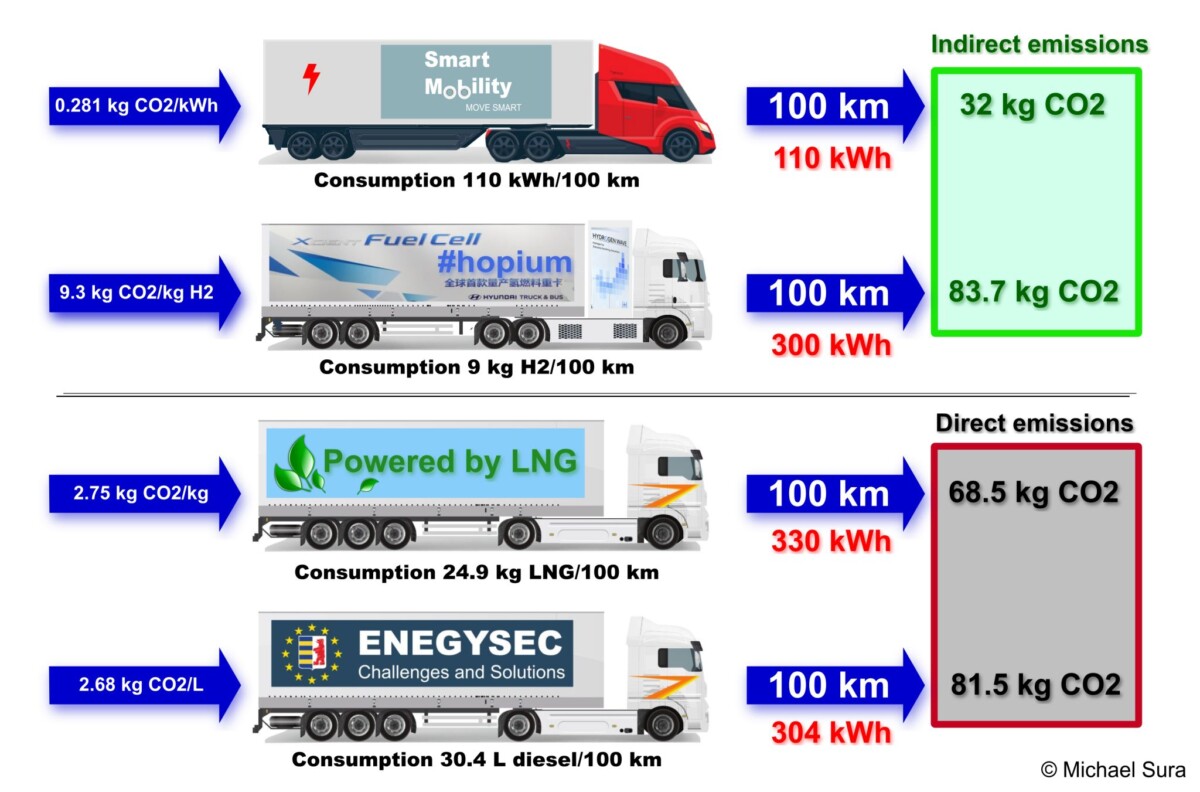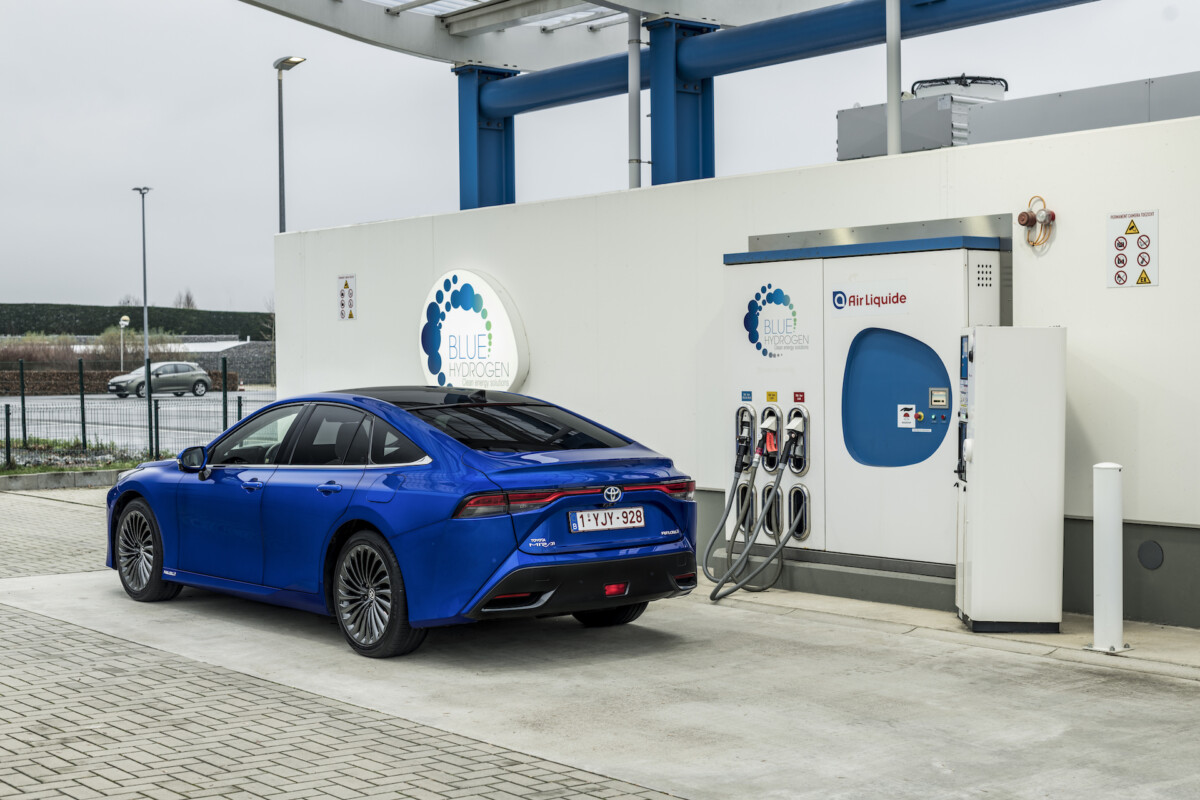“Hydrogen has long been the subject of both hopes and fantasies.” This is how the Academy of Sciences report on hydrogen opens. And this report says it clearly: the hydrogen car will never replace the battery electric car. We explain why.
For some, the electric car with a battery is doomed to disappear. In question ? Its replacement, in the future, by the hydrogen car. It is true that with a full tank completed in less than 5 minutes and more than 500 km of autonomy, the hydrogen car has something to appeal to, compared to an electric car with the same autonomy (or even more than 800 km). with the Mercedes EQS), but which takes between 10 to 30 minutes to recharge depending on the model.
However, for many years, many experts have been sounding the alarm about fuel cell electric cars, also called hydrogen cars. This subject is discussed regularly on Superchargedand the refrain is always the same: hydrogen is too expensive, its energy efficiency is mediocre compared to the 100% battery-electric car, and the dangers of leaks and explosions are real.
Hydrogen fantasies
The Academy of Sciences has just delivered a complete report, of around forty pages, on the question of the use of hydrogen in France and around the world. The introduction to the document starts strong, with the following sentence: “ hydrogen has long been the subject of both hopes and fantasies“. The conclusion of the report, however, dampens hopes in terms of hydrogen cars.
Experts point out that various brakes will prevent the hydrogen car from replacing the electric car. The first is that “ the applications planned for hydrogen lead to its use in new and critical potentially dangerous conditions » before specifying that “ the use of high pressure tanks (700 bar) in cars poses specific problems: at these pressures, the probability is high that a hydrogen leak will lead to self-ignition (in the absence of a spark) and this probably happened at a gas station in Norway in 2019“.

Spacetop G1 // Source: Spacetop


We talked about it in another paper: the risk of leakage is also very dangerous for the planet, since hydrogen is a gas with high global warming potential.
Poor costs and performance
But it is not only this problem that calls into question the rise of the hydrogen car. The cost of producing green hydrogen and the costs associated with its transportation and distribution cannot compete with the costs of a charging station network. The fuel cell present in the car also brings additional costs. Currently, the Toyota Mirai is sold from 73,000 euros while it costs around 80,000 euros for the Hyundai Nexo. Equivalent electric cars are sold several thousand euros less.

Beyond safety and cost concerns, there are also energy efficiency issues. We often point out that the efficiency of a hydrogen car is three times lower than that of a battery-powered electric car. In other words, a hydrogen car uses three times more energy to travel the same distance as an electric car with a battery.
Hydrogen requires many steps, from manufacturing to powering the fuel cell. This generates energy losses, transformed into heat. The report from the Academy of Sciences tells us that the efficiency of an electric car is around 80% compared to 25% for hydrogen cars.
The electric car knocks out the hydrogen car
It is for this reason that experts write that “ the possibility of developing the individual hydrogen car is often mentioned, to the extent that such vehicles (like hydrogen buses) are already on the road, thanks to the development of hydrogen fuel cells and hydrogen tanks adapted. However, the explosion of the battery electric vehicle market, in France and around the world, suggests that it has irreversibly won the competition with hydrogen vehicles. The advantages of the latter lie in the autonomy and the speed of filling the tank, which fail to counterbalance the disadvantages, which are currently prohibitive.“.
Above all, what we don’t find in the report is that the state of the art, in terms of fast charging currently, is a charge from 10 to 80% in just 11 minutes, with the Li Auto Mega and the Zeekr 001 which is arriving this year in France. The 5 minute mark seems achievable in just one to two years. And the solid-state battery, available from 2026, should revolutionize ranges, with more than 1,000 km on a single tank of electrons. Enough to cancel out the advantages of hydrogen compared to battery electric cars.

It is for this reason that experts recommend confining the use of green hydrogen to heavy industries which cannot decarbonize otherwise. This is the case for metallurgy, for example, but also for heavy transport, such as maritime or air transport. An echo that we also find at Tesla with Elon Musk and his Master Plan.
To drive the point home, on X (formerly Twitter), Bertrand Moreau recalls that Nathalie Schmitt, Research and Development Director at Air Liquide Groupe, announced last year that “ The hydrogen car will not be the car for Mr. and Mrs. Everyman. In terms of use, the battery is much more interesting » as we can see in this YouTube video from the Collège de France.
